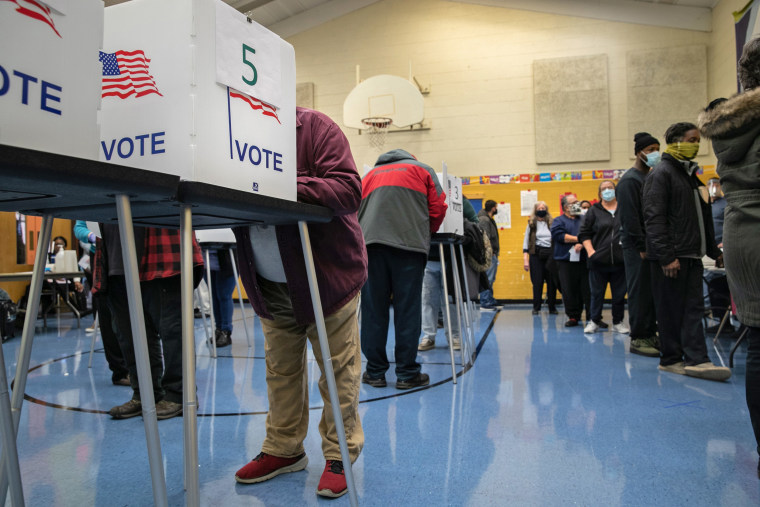Over the next couple of months, no bill is more important than the Democrats' COVID relief package. But over the next couple of decades, no bill is more important than H.R. 1, which the House passed last night.
The House on Wednesday passed the For the People Act, a sweeping bill that seeks to change campaign finance, voting and ethics laws.... Rep. John Sarbanes, D-Md., first introduced the legislation, also known as H.R. 1, in 2019, when it passed the House but was stalled in the Senate, which was controlled by Republicans at the time. He reintroduced the act in January.
The final roll call on the legislation, which passed largely along party lines, is online here.
The scope of the For the People Act is itself quite extraordinary. This is an ethics and election reform bill, to be sure, but given the reach of the proposal, it's also fair to characterize this as a democracy reform package. Indeed, the Brennan Center for Justice explained in a recent report, "If enacted, [H.R. 1] would be the most significant voting rights and democracy reform in more than half a century."
Several of the provisions relate to overhauling lobbying, ethics, campaign finance, and transparency laws, including requiring presidents to release their tax returns. But at the heart of the For the People Act is a series of reforms to protect and expand Americans' right to vote.
To that end, the legislation would, on a national scale, expand early and absentee voting. And establish a system of automatic voter registration. And modernize voting systems. And restrict voter-roll purges. And require independent commissions to draw the lines for congressional districts, weakening gerrymandering. The list keeps going, with plenty of related provisions.
At this point, I can practically hear what you're thinking. "Yes, yes, I'm sure it's a very nice bill," you're saying to yourself, "but we all know how the process works. House Democrats pass worthwhile legislation, they send the bill to the Senate, and we gnash our teeth as it dies at the hands of another Republican filibuster. Why bother even taking an interest?"
It's an understandable sentiment. The trouble is, this is too important to simply throw up one's arms in disgust and move on to the next good bill that GOP senators will block.
Efforts to undermine the nation's democracy are brazen, ongoing, and consequential. The Atlantic's Ron Brownstein wrote in a piece published yesterday (before last night's House vote) that the fight over voting rights is reaching "a new crescendo," as state Republican officials scramble to approve voter-suppression measures and Democrats at the federal level scramble to advance the For the People Act.
It's no exaggeration to say that future Americans could view the resolution of this struggle as a turning point in the history of U.S. democracy. The outcome could not only shape the balance of power between the parties, but determine whether that democracy grows more inclusive or exclusionary. To many civil-rights advocates and democracy scholars I've spoken with, this new wave of state-level bills constitutes the greatest assault on Americans' right to vote since the Jim Crow era's barriers to the ballot.
Quite right. All of this is coming to a head now. Not only are voter-suppression measures advancing in several Republican-led states, but the next round of gerrymandering is also poised to get underway. GOP officials are gearing up to effectively rig the democracy in their favor -- in ways without modern precedent.
H.R. 1 is the remedy. Passing it is more than just another priority on a longer legislative to-do list. In a separate piece published in January, Ron Brownstein added, "No decision facing Democrats over the next two years will shape the long-term political competition between the parties more than whether they end the Senate filibuster to pass their agenda to reform elections and expand access to the vote."
It's no secret that some Senate Democrats are refusing to even consider changing the way the chamber does business -- or more accurately, fails to do business.
But the Washington Post's E.J. Dionne wrote something in January that rings true: "Senators need to ask themselves which sentence they would like historians to attach to their names. One could be: 'I saved the filibuster.' Here's hoping that most of them would prefer: 'I saved democracy.'"
